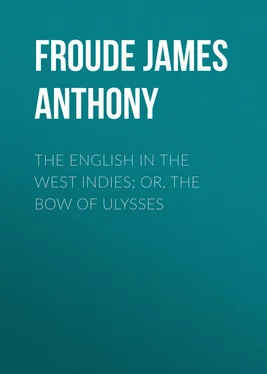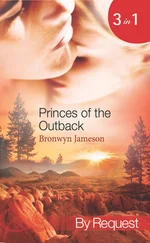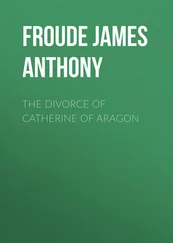James Froude - The English in the West Indies; Or, The Bow of Ulysses
Здесь есть возможность читать онлайн «James Froude - The English in the West Indies; Or, The Bow of Ulysses» — ознакомительный отрывок электронной книги совершенно бесплатно, а после прочтения отрывка купить полную версию. В некоторых случаях можно слушать аудио, скачать через торрент в формате fb2 и присутствует краткое содержание. Жанр: foreign_antique, foreign_prose, Путешествия и география, на английском языке. Описание произведения, (предисловие) а так же отзывы посетителей доступны на портале библиотеки ЛибКат.
- Название:The English in the West Indies; Or, The Bow of Ulysses
- Автор:
- Жанр:
- Год:неизвестен
- ISBN:нет данных
- Рейтинг книги:5 / 5. Голосов: 1
-
Избранное:Добавить в избранное
- Отзывы:
-
Ваша оценка:
- 100
- 1
- 2
- 3
- 4
- 5
The English in the West Indies; Or, The Bow of Ulysses: краткое содержание, описание и аннотация
Предлагаем к чтению аннотацию, описание, краткое содержание или предисловие (зависит от того, что написал сам автор книги «The English in the West Indies; Or, The Bow of Ulysses»). Если вы не нашли необходимую информацию о книге — напишите в комментариях, мы постараемся отыскать её.
The English in the West Indies; Or, The Bow of Ulysses — читать онлайн ознакомительный отрывок
Ниже представлен текст книги, разбитый по страницам. Система сохранения места последней прочитанной страницы, позволяет с удобством читать онлайн бесплатно книгу «The English in the West Indies; Or, The Bow of Ulysses», без необходимости каждый раз заново искать на чём Вы остановились. Поставьте закладку, и сможете в любой момент перейти на страницу, на которой закончили чтение.
Интервал:
Закладка:
Meanwhile they are perfectly happy. In no part of the globe is there any peasantry whose every want is so completely satisfied as her Majesty's black subjects in these West Indian islands. They have no aspirations to make them restless. They have no guilt upon their consciences. They have food for the picking up. Clothes they need not, and lodging in such a climate need not be elaborate. They have perfect liberty, and are safe from dangers, to which if left to themselves they would be exposed, for the English rule prevents the strong from oppressing the weak. In their own country they would have remained slaves to more warlike races. In the West Indies their fathers underwent a bondage of a century or two, lighter at its worst than the easiest form of it in Africa; their descendants in return have nothing now to do save to laugh and sing and enjoy existence. Their quarrels, if they have any, begin and end in words. If happiness is the be all and end all of life, and those who have most of it have most completely attained the object of their being, the 'nigger' who now basks among the ruins of the West Indian plantations is the supremest specimen of present humanity.
We retired to our berths at last. At waking we were at anchor off St. Vincent, an island of volcanic mountains robed in forest from shore to crest. Till late in the last century it was the headquarters of the Caribs, who kept up a savage independence there, recruited by runaway slaves from Barbadoes or elsewhere. Brandy and Sir Ralph Abercrombie reduced them to obedience in 1796, and St. Vincent throve tolerably down to the days of free trade. Even now when I saw it, Kingston, the principal town, looked pretty and well to do, reminding me, strange to say, of towns in Norway, the houses stretching along the shore painted in the same tints of blue or yellow or pink, with the same red-tiled roofs, the trees coming down the hill sides to the water's edge, villas of modest pretensions shining through the foliage, with the patches of cane fields, the equivalent in the landscape of the brilliant Norwegian grass. The prosperity has for the last forty years waned and waned. There are now two thousand white people there, and forty thousand coloured people, and proportions alter annually to our disadvantage. The usual remedies have been tried. The constitution has been altered a dozen times. Just now I believe the Crown is trying to do without one, having found the results of the elective principle not encouraging, but we shall perhaps revert to it before long; any way, the tables show that each year the trade of the island decreases, and will continue to decrease while the expenditure increases and will increase.
I did not land, for the time was short, and as a beautiful picture the island was best seen from the deck. The characteristics of the people are the same in all the Antilles, and could be studied elsewhere. The bustle and confusion in the ship, the crowd of boats round the ladder, the clamour of negro men's tongues, and the blaze of colours from the negro women's dresses, made up together a scene sufficiently entertaining for the hour which we remained. In the middle of it the Governor, Mr. S – , came on board with another official. They were going on in the steamer to Tobago, which formed part of his dominions.
Leaving St. Vincent, we were all the forenoon passing the Grenadines, a string of small islands fitting into their proper place in the Antilles semicircle, but as if Nature had forgotten to put them together or else had broken some large island to pieces and scattered them along the line. Some were large enough to have once carried sugar plantations, and are now made over wholly to the blacks; others were fishing stations, droves of whales during certain months frequenting these waters; others were mere rocks, amidst which the white-sailed American coasting schooners were beating up against the north-east trade. There was a stiff breeze, and the sea was white with short curling waves, but we were running before it and the wind kept the deck fresh. At Grenada, the next island, we were to go on shore.
Grenada was, like St. Vincent, the home for centuries of man-eating Caribs, French for a century and a half, and finally, after many desperate struggles for it, was ceded to England at the peace of Versailles. It is larger than St. Vincent, though in its main features it has the same character. There are lakes in the hills, and a volcanic crater not wholly quiescent; but the especial value of Grenada, which made us fight so hardly to win it, is the deep and landlocked harbour, the finest in all the Antilles.
Père Labat, to whose countrymen it belonged at the time of his own visit there, says that 'if Barbadoes had such a harbour as Grenada it would be an island without a rival in the world. If Grenada belonged to the English, who knew how to turn to profit natural advantages, it would be a rich and powerful colony. In itself it was all that man could desire. To live there was to live in paradise.' Labat found the island occupied by countrymen of his own, ' paisans aisez ', he calls them, growing their tobacco, their indigo and scarlet rocou, their pigs and their poultry, and contented to be without sugar, without slaves, and without trade. The change of hands from which he expected so much had actually come about. Grenada did belong to the English, and had belonged to us ever since Rodney's peace. I was anxious to see how far Labat's prophecy had been fulfilled.
St. George's, the 'capital,' stands on the neck of a peninsula a mile in length, which forms one side of the harbour. Of the houses, some look out to sea, some inwards upon the carenage , as the harbour is called. At the point there was a fort, apparently of some strength, on which the British flag was flying. We signalled that we had the Governor on board, and the fort replied with a puff of smoke. Sound there was none or next to none, but we presumed that it had come from a gun of some kind. We anchored outside. Mr. S – landed in an official boat with two flags, a missionary in another, which had only one. The crews of a dozen other boats then clambered up the gangway to dispute possession of the rest of us, shouting, swearing, lying, tearing us this way and that way as if we were carcases and they wild beasts wanting to dine upon us. We engaged a boat for ourselves as we supposed; we had no sooner entered it than the scandalous boatman proceeded to take in as many more passengers as it would hold. Remonstrance being vain, we settled the matter by stepping into the boat next adjoining, and amidst howls and execrations we were borne triumphantly off and were pulled in to the land.
Labat had not exaggerated the beauty of the landlocked basin into which we entered on rounding the point. On three sides wooded hills rose high till they passed into mountains; on the fourth was the castle with its slopes and batteries, the church and town beyond it, and everywhere luxuriant tropical forest trees overhanging the violet-coloured water. I could well understand the Frenchman's delight when he saw it, and also the satisfaction with which he would now acknowledge that he had been a shortsighted prophet. The English had obtained Grenada, and this is what they had made of it. The forts which had been erected by his countrymen had been deserted and dismantled; the castle on which we had seen our flag flying was a ruin; the walls were crumbling and in many places had fallen down. One solitary gun was left, but that was honeycombed and could be fired only with half a charge to salute with. It was true that the forts had ceased to be of use, but that was because there was nothing left to defend. The harbour is, as I said, the best in the West Indies. There was not a vessel in it, nor so much as a boat-yard that I could see where a spar could be replaced or a broken rivet mended. Once there had been a line of wharves, but the piles had been eaten by worms and the platforms had fallen through. Round us when we landed were unroofed warehouses, weed-choked courtyards, doors gone, and window frames fallen in or out. Such a scene of desolation and desertion I never saw in my life save once, a few weeks later at Jamaica. An English lady with her children had come to the landing place to meet my friends. They, too, were more like wandering ghosts than human beings with warm blood in them. All their thoughts were on going home – home out of so miserable an exile. 4 4 I have been told that this picture is overdrawn, that Grenada is the most prosperous of the Antilles, that its exports are increasing, that English owners are making large profits again, that the blacks are thriving beyond example, that there are twenty guns in the Fort, that the wharves and Quay are in perfect condition, that there are no roofless warehouses, that in my description of St. George's I must have been asleep or dreaming. I can only repeat and insist upon what I myself saw. I know very well that in parts of the island a few energetic English gentlemen are cultivating their land with remarkable success. Any enterprising Englishman with capital and intelligence might do the same. I know also that in no part of the West Indies are the blacks happier or better off. But notwithstanding the English interest in the Island has sunk to relatively nothing. Once Englishmen owned the whole of it. Now there are only thirty English estates. There are five thousand peasant freeholds, owned almost entirely by coloured men, and the effect of the change is written upon the features of the harbour. Not a vessel of any kind was to be seen in it. The great wooden jetty where cargoes used to be landed, or taken on board, was a wreck, the piles eaten through, the platform broken. On the Quay there was no sign of life, or of business, the houses along the side mean and insignificant, while several large and once important buildings, warehouses, custom houses, dwelling houses, or whatever they had been, were lying in ruins, tropical trees growing in the courtyards, and tropical creepers climbing over the masonry showing how long the decay had been going on. These buildings had once belonged to English merchants, and were evidence of English energy and enterprise, which once had been and now had ceased to be. As to the guns in the fort, I cannot say how much old iron may be left there. But I was informed that only one gun could be fired and that with but half a charge. This is of little consequence or none, but unless the English population can be reinforced, Grenada in another generation will cease to be English at all, while the prosperity, the progress, even the continued civilisation of the blacks depends on the maintenance there of English influence and authority.
Интервал:
Закладка:
Похожие книги на «The English in the West Indies; Or, The Bow of Ulysses»
Представляем Вашему вниманию похожие книги на «The English in the West Indies; Or, The Bow of Ulysses» списком для выбора. Мы отобрали схожую по названию и смыслу литературу в надежде предоставить читателям больше вариантов отыскать новые, интересные, ещё непрочитанные произведения.
Обсуждение, отзывы о книге «The English in the West Indies; Or, The Bow of Ulysses» и просто собственные мнения читателей. Оставьте ваши комментарии, напишите, что Вы думаете о произведении, его смысле или главных героях. Укажите что конкретно понравилось, а что нет, и почему Вы так считаете.












